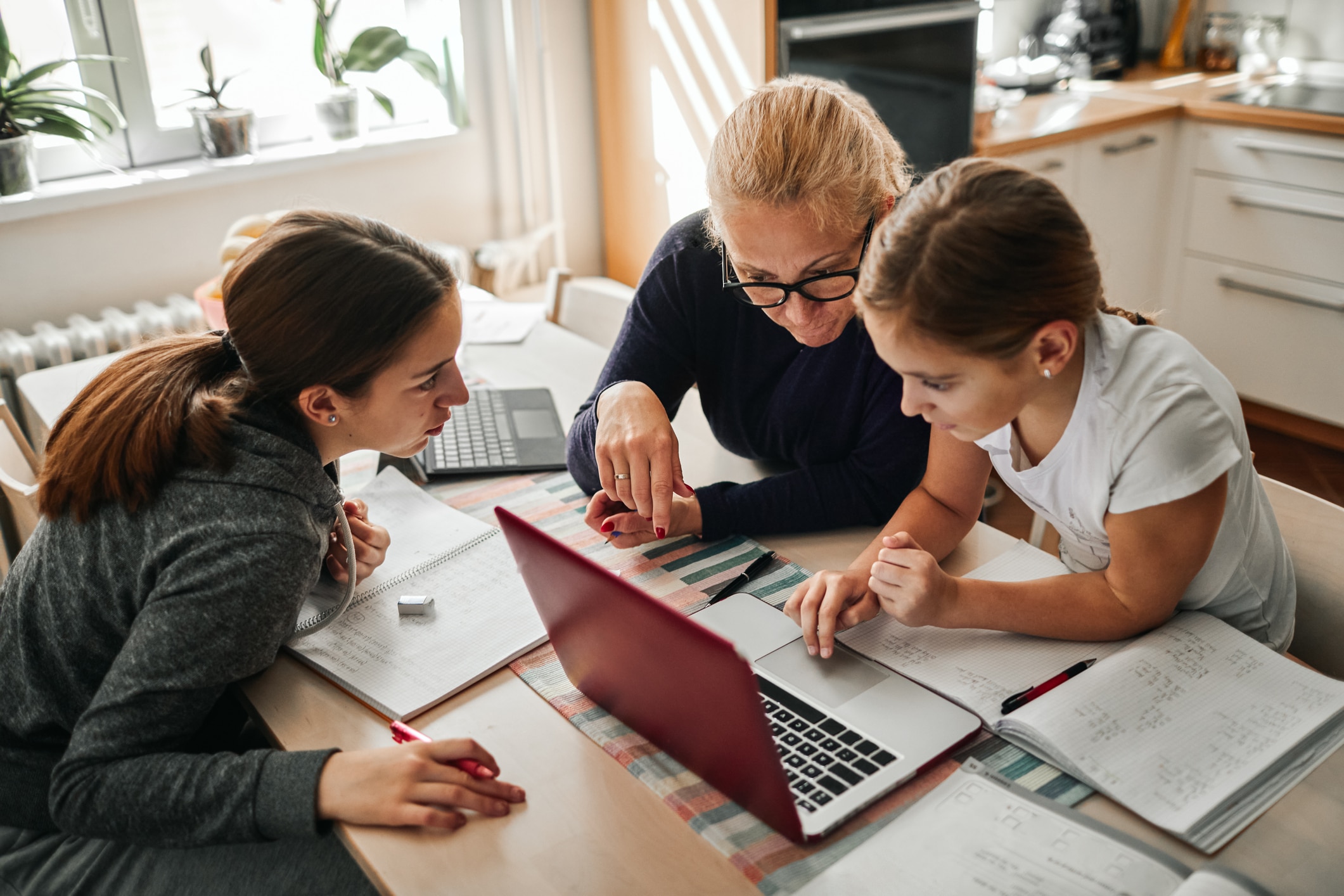
No matter where you fall on the whole “should they” or “shouldn’t they” go back to school debate, I think everyone can agree, the 2020 school year is far less than ideal. No matter what school districts choose, there will be consequences that have a significant impact not just on their education, but their social and emotional health.
Kids need their peers. The input they get from their social interactions helps them learn important lessons about relationships, communicate more effectively, and regulate their emotions better. Scientists also know that the benefits kids get from playing with their peers is about more than just the fun and games. It helps them process what they learn, blow off needed emotional steam, and learn how to exist in group environments.
That said, social learning can be regained. A child or a teacher’s life cannot. If your school has mandated distance learning, we recommend following their restrictions to the letter. So how do you help kids continue to be happy and healthy through what could be a lengthy period of social isolation? Here’s my tips:
Give yourself a break
Children can be exhausting, and there’s a medical reason for that. The smaller a child is, the more their pre-frontal cortex has not matured. Developmentally, they rely on adults to help them regulate their emotions. And that’s hard to do around the clock, especially when you’re required to handle their education, as well. When you can’t rely on school to break up the day, try your best to work with your child in shifts—perhaps you and your significant other switch off, or a trusted, masked-up grandparent could help. Whatever you can do will be a good respite, for you, and your child.
Structure your day, but don’t over schedule it
Don’t expect your child to have a seven-hour school day, when working at home. Most successful home schooling is done in about four hours a day. Do be sure that your child is logged in at the beginning of the school day, and make sure they are up, dressed, and fed as usual. But don’t worry if you can’t recreate the school experience at home. Do your best, stay involved with your child’s teachers, but also pay attention to when your child needs breaks.
Find creative ways for connection
Arranging for your child to play collaborative games like Minecraft with friends online may become more important as traditional ways of interacting are no longer possible. Consider Zoom parties with friends. Small groups of masked kids playing outside can also be worthwhile. The normal limits on screen time go out the window here. Make sure your child has plenty of unstructured time for their friends, by phone, text or online. They will need it more than ever.
Stay involved and watch for warning signs
Though they may not so readily show it, social isolation can have a tough effect on older kids, too. Preteens, who are moving into deeper and different relationships with their peers, may find quarantine especially difficult and confusing. Older teens, who worry about the impact of the virus on their future plans, may experience an anxiety overload. They may be more likely to pull away. Don’t let them. Stay involved, ask questions, and take time out to spend time with your teen, whether that’s making a homemade meal together, or watching a favorite show, or engaging in shared projects or backyard sports.
And if your child becomes particularly uncommunicative, exhibits serious behavior changes, loses interest in friends or normal activities, has a significant grade drop or talks about self-harm, seek out the help of a medical professional immediately. This pandemic is affecting everyone, and some kids may need a little more support to get through this stressful period.
This school year is going to be hard on the whole family, no matter what the outcome. How you set the tone and set the family rules can go a long way toward making this crisis more manageable.
UofL Health – Peace Hospital offers inpatient crisis stabilization, partial hospitalization and intensive outpatient programs. If you or a family member are struggling with feelings of hopelessness, depression or anxiety , contact our Assessment and Referral Center for a no-charge assessment 24/7 at 502-451-3333 or 800-451-3637. Walk-ins welcome. Or contact the 24-Hour Crisis and Information Center Line at 502-589-4313 or 800-221-0446.









